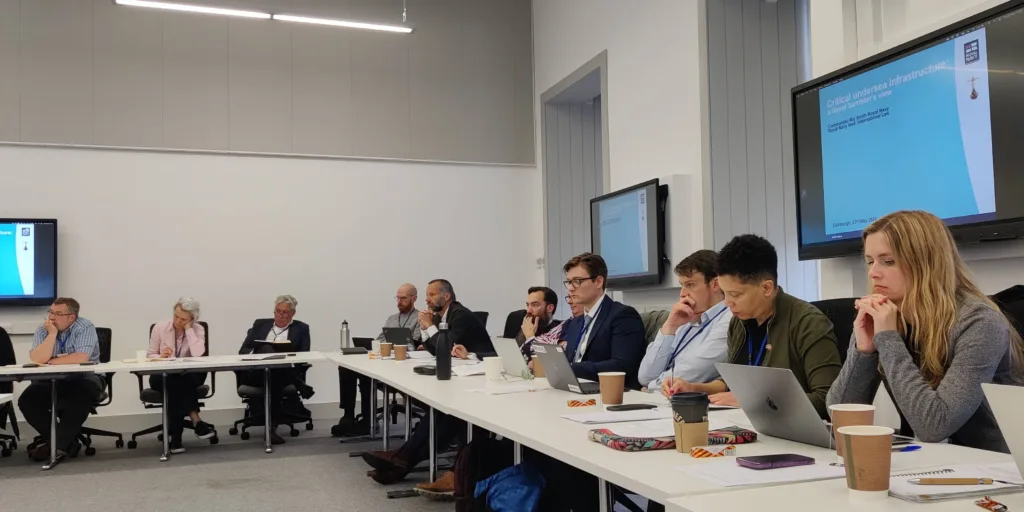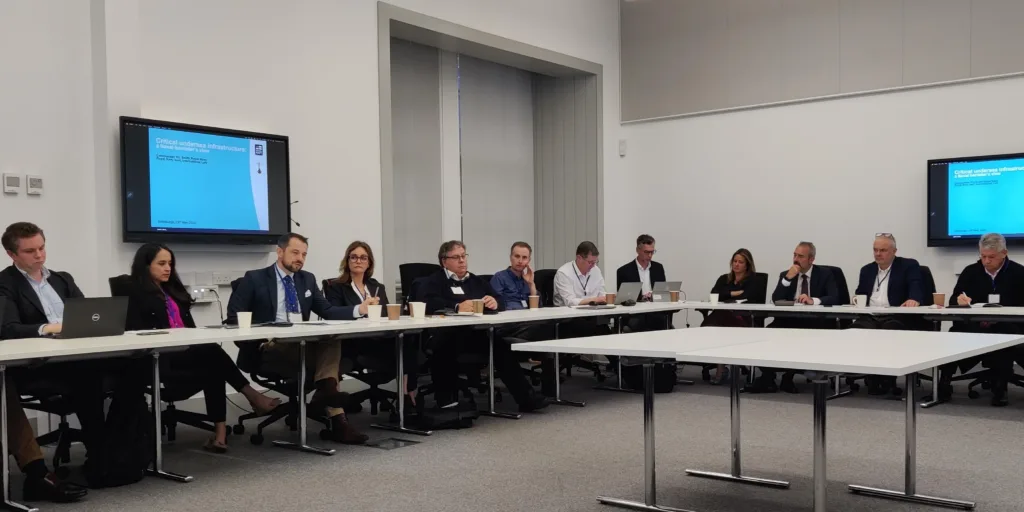The North Sea is a strategic space for the green transition. It is a paradigmatic space for heavily industrialized regional seas with a high density of infrastructure. Efficient and reliable critical maritime infrastructure protection is hence vital for the region. As part of the Edinburgh-Copenhagen partnership and in collaboration with the SafeSeas, we held a second symposium on the North Sea in Edinburgh from 23rd to 24th of May.


Drawing on the insights of the first symposium, which had focused on industry needs, the threat landscape and the responses by governments and regional organizations in the North Sea, this event investigated legal gaps, operations at sea, the cyber-physical protection nexus, as well as societal and market responses to the new threat landscape.
At the event I outlined the changing face of maritime security in the age of infrastructure, drawing on our book Understanding Maritime Security, the importance to recognize the entanglement of infrastructures and security debates, and the need to understand the North Sea as a laboratory.
The summary is available on the SafeSeas website.
